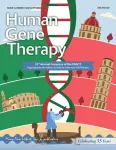Upcycling excess carbon dioxide with tiny microbes
2024-08-30
(Press-News.org) While some microbes can make people sick or spoil food, others are critical for survival. These tiny organisms can also be engineered to make specific molecules. Researchers reporting in ACS Sustainable Chemistry & Engineering have rewired one such microbe to help tackle greenhouse gases in the atmosphere: It takes in carbon dioxide (CO2) gas and produces mevalonate, a useful building block for pharmaceuticals.
The increasing concentration of greenhouse gases in the atmosphere has led to widespread global warming. To begin to address the problem, greenhouse gas emissions, including CO2, need to be significantly reduced. On top of that, the CO2 already present could be removed. Methods to capture CO2 are in development, and one promising option involves microbes. Genetic engineering can modify their natural biosynthetic pathways, turning the microbes into miniature living factories that can produce all sorts of things — for example, insulin.
One potential microbial factory is Cupriavidus necator H16, a bacterium favored thanks to its relatively unfussy nature about what it’s fed. Because it can survive on little more than CO2 and hydrogen gas, the bacterium is a great candidate for capturing and converting the gases into larger molecules. But even though the microbe’s DNA can be rewired to produce interesting products, it’s not great at remembering those new instructions over time. To put it scientifically, the plasmids (the genetic instructions) are relatively unstable. Katalin Kovacs and colleagues wanted to see if they could improve C. necator’s ability to remember its new instructions and produce useful carbon-based building blocks out of CO2 gas.
The team got to work hacking C. necator’s biochemical pathways responsible for converting CO2 into larger six-carbon molecules. The key to improving the plasmid’s stability lies in an enzyme called RubisCo, which allows the bacterium to utilize CO2. Essentially, the new plasmid was paired to the enzyme, so if a cell failed to remember the new instructions, it would fail to remember how to make RubisCo and die. Meanwhile, the remaining cells with better memories would survive and replicate, passing along the plasmid.
In tests, the newly engineered microbes produced significantly more of the six-carbon molecule mevalonate compared with a control strain. Mevalonate is a molecular building block for all sorts of substances in living and synthetic systems alike, including cholesterol and other steroid molecules with pharmaceutical applications. In fact, this research produced the largest amounts to date of mevalonate from CO2 or other single-carbon reactants using microbes. The researchers say this is a more economically feasible carbon fixation system than previous systems involving C. necator, and it could be expanded to other microbial strains as well.
The authors acknowledge funding from the Biotechnology and Biological Sciences Research Council and the Engineering and Physical Sciences Research Council of the United Kingdom.
###
The American Chemical Society (ACS) is a nonprofit organization chartered by the U.S. Congress. ACS’ mission is to advance the broader chemistry enterprise and its practitioners for the benefit of Earth and all its people. The Society is a global leader in promoting excellence in science education and providing access to chemistry-related information and research through its multiple research solutions, peer-reviewed journals, scientific conferences, eBooks and weekly news periodical Chemical & Engineering News. ACS journals are among the most cited, most trusted and most read within the scientific literature; however, ACS itself does not conduct chemical research. As a leader in scientific information solutions, its CAS division partners with global innovators to accelerate breakthroughs by curating, connecting and analyzing the world’s scientific knowledge. ACS’ main offices are in Washington, D.C., and Columbus, Ohio.
Registered journalists can subscribe to the ACS journalist news portal on EurekAlert! to access embargoed and public science press releases. For media inquiries, contact newsroom@acs.org.
Note: ACS does not conduct research, but publishes and publicizes peer-reviewed scientific studies.
Follow us: X, formerly Twitter | Facebook | LinkedIn | Instagram
END
ELSE PRESS RELEASES FROM THIS DATE:
2024-08-30
Korean researchers announced that Korea’s Code Division Multiple Access (CDMA) commercialization technology, which was the world’s first successfully commercialized CDMA technology in 1996, has been listed on the ‘Milestones Program,’ a world-renowned program hosted by the Institute of Electrical and Electronic Engineers (IEEE). As a result, it has become Korea’s first technology to be recognized by a world-class association to contribute to the development of mankind and industrial innovation.
Electronics and Telecommunications Research Institute (ETRI) announced on June 11 that their ...
2024-08-30
About The Study: Among patients who underwent major noncardiac surgery, a continuation strategy of renin-angiotensin system inhibitors before surgery was not associated with a higher rate of postoperative complications than a discontinuation strategy.
Corresponding Authors: To contact the corresponding authors, email Matthieu Legrand, MD, PhD (matthieu.legrand@ucsf.edu) and Etienne Gayat, MD, PhD (etienne.gayat@aphp.fr).
To access the embargoed study: Visit our For The Media website at this link https://media.jamanetwork.com/
(doi:10.1001/jama.2024.17123)
Editor’s Note: Please see the article for additional information, including ...
2024-08-30
A new article in the peer-reviewed journal Human Gene Therapy describes the consensus reached by invited experts who participated in a meeting to evaluate the potential carcinogenicity of gene therapies. Click here to read the article now.
The participants discuss the definition of vector genotoxicity, sources of uncertainty, suitable toxicological endpoints for genotoxic assessment of gene therapies, and future research needs. The proposed recommendations will help guide the development of regulatory guidelines for the non-clinical toxicological assessment of gene therapy products.
Jan ...
2024-08-30
Media Contact:
John Dudley
(814) 490-3290 (cell)
jjdudley@usf.edu
EMBARGOED FOR RELEASE UNTIL 5 A.M. ET ON AUG. 30, 2024
What a submerged ancient bridge discovered in a Spanish cave reveals about early human settlement
Led by a USF geologist, a team of researchers examined a submerged 25-foot bridge to tackle a long-lasting archaeological controversy: When humans settled on the islands in the western Mediterranean. Their findings narrow a historical gap between the settlement timelines of the eastern and western Mediterranean regions.
TAMPA, Fla. (Aug. 27, 2024) – A new study led by the University ...
2024-08-30
Understanding how cells process nutrients and produce energy - collectively known as metabolism - is essential in biology. However, analyzing the vast amounts of data on cellular processes to determine metabolic states is a complex task.
Modern biology generates large datasets on various cellular activities. These "omics" datasets provide insights into different cellular functions, such as gene activity and protein levels. However, integrating and making sense of these datasets to understand cell metabolism is challenging.
Kinetic models offer a way to decode this complexity by providing mathematical representations of cellular metabolism. ...
2024-08-30
Women in China are now healthier than ever, but as the economy grows and China’s culture becomes more westernised, the country faces new challenges due to changing social norms and expectations, say experts in a special collection of articles published by The BMJ today.
In nine articles spanning topics and conditions across women’s life courses, experts from China analyse the current state of women’s health; review achievements and remaining challenges in the contexts of women’s empowerment and rights, labour force participation, and family and community dynamics; and make recommendations ...
2024-08-30
CAMBRDIGE, MA – In order to train more powerful large language models, researchers use vast dataset collections that blend diverse data from thousands of web sources.
But as these datasets are combined and recombined into multiple collections, important information about their origins and restrictions on how they can be used are often lost or confounded in the shuffle.
Not only does this raise legal and ethical concerns, it can also damage a model’s performance. For instance, if a dataset is miscategorized, someone training a machine-learning model for a certain task may end up unwittingly using data that are not designed for that task.
In addition, data from unknown sources ...
2024-08-30
London, UK, 30 August 2024: Updated ESC Guidelines on the management of elevated blood pressure and hypertension include a new elevated blood pressure category, more ambitious and intensive treatment targets, and, for the first time, recommendations on the use of renal denervation to treat various forms of hypertension. The Guidelines have been produced by an international panel of experts that include co-Chairpersons Professor Bill McEvoy of the University of Galway, Ireland, and Professor Rhian Touyz of McGill University, Canada.
Elevated blood pressure and hypertension are by far the most common and important risk ...
2024-08-30
London, UK, 30 August 2024: The 2024 ESC Guidelines for the management of peripheral arterial and aortic diseases (PAAD) evaluate these vascular diseases together as part of same cardiovascular system, appreciating that patients with aortic diseases are at risk of having peripheral vascular diseases and vice versa. The Guidelines are aimed at cardiologists, but were coordinated for alignment with guidelines for surgeons by EACTS and endorsed by VASCERN and ESVM.
“These updated guidelines have been introduced now due to significant advancements and shifts in our understanding and management of aortic and peripheral ...
2024-08-30
London, UK, 30 August 2024: The 2024 ESC Guidelines on the management of chronic coronary syndromes (CCS) include a focus on both larger and smaller blood vessels of the heart; new models to estimate chances of blocked large arteries (so-called obstructive coronary artery disease); optimal selection and sequence of tests; drugs and interventions to prevent disease complications and improve symptoms, and the fundamental role of patient involvement.
“The new guidelines prompt cardiologists to rethink chronic coronary syndromes ...
LAST 30 PRESS RELEASES:
[Press-News.org] Upcycling excess carbon dioxide with tiny microbes


